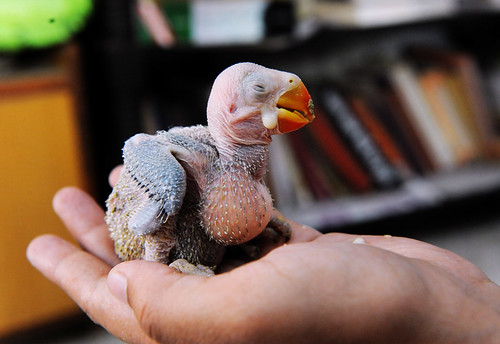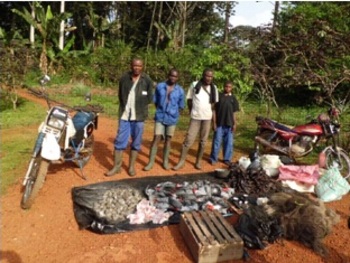Officers find parrots in man's pants
 Thursday, March 29, 2012 at 14:20
Thursday, March 29, 2012 at 14:20
 Thursday, March 29, 2012 at 14:20
Thursday, March 29, 2012 at 14:20  Thursday, March 29, 2012 at 12:36
Thursday, March 29, 2012 at 12:36  Trees are vital to the Carnaby's cockatoo survival. Plant one today! Image by Delia AnthonyPlant's for Carnaby's is a list devised by the Department of Environment and Conservation detailing species that the endangered Carnaby black cockatoos use as feeding, roosting and nesting resources. It includes native and exotic species.
Trees are vital to the Carnaby's cockatoo survival. Plant one today! Image by Delia AnthonyPlant's for Carnaby's is a list devised by the Department of Environment and Conservation detailing species that the endangered Carnaby black cockatoos use as feeding, roosting and nesting resources. It includes native and exotic species.
The medium and high priority plants below, all native species, are fairly easy to get from nurseries around winter and onwards. Specialist native nurseries will have some of the more difficult to obtain species.
High priority food plants inlcude Banksia grandis, B. littoralis, B. prionotes, B. speciosa, B. prostrata and B. undulata. None of these plants are particularly tall or huge trees, though if you do have room to plant some large Eucalypts there are Tuarts (Eucalyptus gomphocephala), which grow in a 20 odd km strip along the coast between Jurien Bay to near Busselton (Powell, 1990). Marri (Corymbia calophylla) is an extremely important food species and after about 120 years of age they form hollows in which cockatoos can breed.
 Wednesday, March 28, 2012 at 14:22
Wednesday, March 28, 2012 at 14:22  An ugly duckling?A recently hatched Alexandrine parakeet is held on March 25 by Harmesh Bhatt, the founder of the Asha Foundation animal shelter and hospital in Ahmedabad, Gujarat, India. Nearly 50 Alexandrine parakeets were recently rescued and are currently being cared for at the animal shelter, which specializes in the rehabilitation of street animals.
An ugly duckling?A recently hatched Alexandrine parakeet is held on March 25 by Harmesh Bhatt, the founder of the Asha Foundation animal shelter and hospital in Ahmedabad, Gujarat, India. Nearly 50 Alexandrine parakeets were recently rescued and are currently being cared for at the animal shelter, which specializes in the rehabilitation of street animals.
 Wednesday, March 28, 2012 at 14:08
Wednesday, March 28, 2012 at 14:08  Wednesday, March 28, 2012 at 13:40
Wednesday, March 28, 2012 at 13:40  The face of the Illigal trade in African grey parrots and partsA notorious parrot trapper, Roger Atangana, and three of his accomplices, have once again been arrested. Atangana was caught with 113 parrot heads, 43 death parrots, 85 smoked parrots, 13 live parrots and 1650 tails inside Lobéké National Park, in the East Region of Cameroon. Two motorbikes were also seized from the capturers.
The face of the Illigal trade in African grey parrots and partsA notorious parrot trapper, Roger Atangana, and three of his accomplices, have once again been arrested. Atangana was caught with 113 parrot heads, 43 death parrots, 85 smoked parrots, 13 live parrots and 1650 tails inside Lobéké National Park, in the East Region of Cameroon. Two motorbikes were also seized from the capturers.
Atangana was arrested on March 21, by game rangers and elements of Cameroon’s Rapid Intervention Brigade, known in French as BIR. The World Wide Fund for Nature, WWF provided financial and logistics support for the anti-poaching operation.